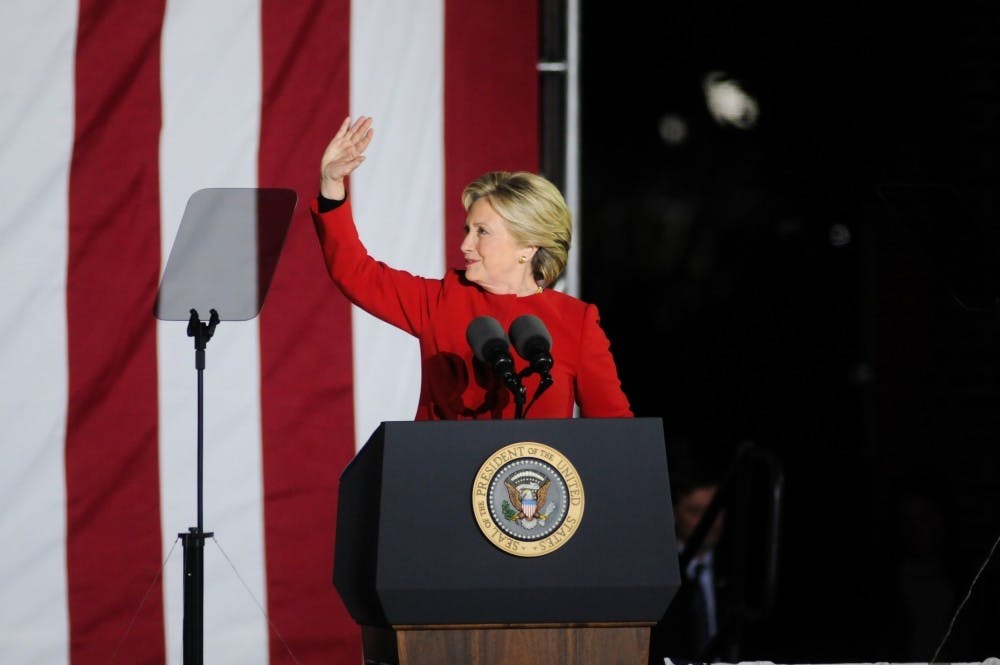
Gender equality in Pennsylvania's elected offices received a grade of "F" in the Representation 2020 Gender Parity Index — the second lowest national score. A conference hosted by the Perry World House on Nov. 11 sought to tackle this issue.
The inaugural “Good Reasons to Run” conference connected political activists, scholars, and students in one forum to discuss the topic of the underrepresentation of women in politics.
From female academics, non-governmental organization leaders, and political advocates, the conference featured nearly 50 speakers who explored the ways female political involvement can be encouraged.
A central goal of the conference was to bring together political advocates and scholars in one single forum.
“These are two groups of people who almost never get to meet and talk to each other,” said Shauna Shames, assistant professor of political science at Rutgers University at Camden and co-organizer of the conference. “We often work in parallel without ever crossing.”
The day consisted of four main panels titled "Who Runs for Office?," "Why Should Women Run?," "Helping Women Run - What Works?," and "Show Them the Money."
One of the conference's highlights for students was when moderator and Tulane University Political Science professor Mirya Holman analyzed the differences in the way men and women raise funds. Holman cited the example of women in politics being discouraged from explicitly asking for money while campaigning.
Prior to the conference, each scholar present wrote an academic paper on their panel topic. Over the next several months, a book will be formed with each of the four panels as sections and each of the panelists' papers as chapters.
Another central goal of the conference was to foster a student dialogue. This goal was conceived by conference co-organizer and Penn Political Science assistant professor Dawn Teele who said her students had been enthusiastic at the prospect of the conference.
After the four panels, the conference split into several smaller breakout sessions, including one for Penn students to engage with female political activists. The session served both as an opportunity for students to learn more about running for office as well as a platform for academics and politicians to learn about how students perceive the status of women in the current political climate.
Shames explained that the conference was organized to facilitate dialogue between attendees and ensure that every participant was given a chance to speak throughout the day.
“With a lot of conferences, you come and are an audience member and you listen to people speak and then you go away, but that is not at all what we wanted here,” Shames said, explaining that the conference promoted female inclusivity and collaboration within the larger scope of the political discussion.
College freshman Zoe Walker said she found that this intention was well translated in practice.
“It really felt like a reciprocal conversation where we had things to tell them and they had things to tell us and we were all learning from each other,” Walker said. “The diversity of ideas and the different ways that people were approaching the issue of female underrepresentation was really refreshing."
The Daily Pennsylvanian is an independent, student-run newspaper. Please consider making a donation to support the coverage that shapes the University. Your generosity ensures a future of strong journalism at Penn.
Donate




